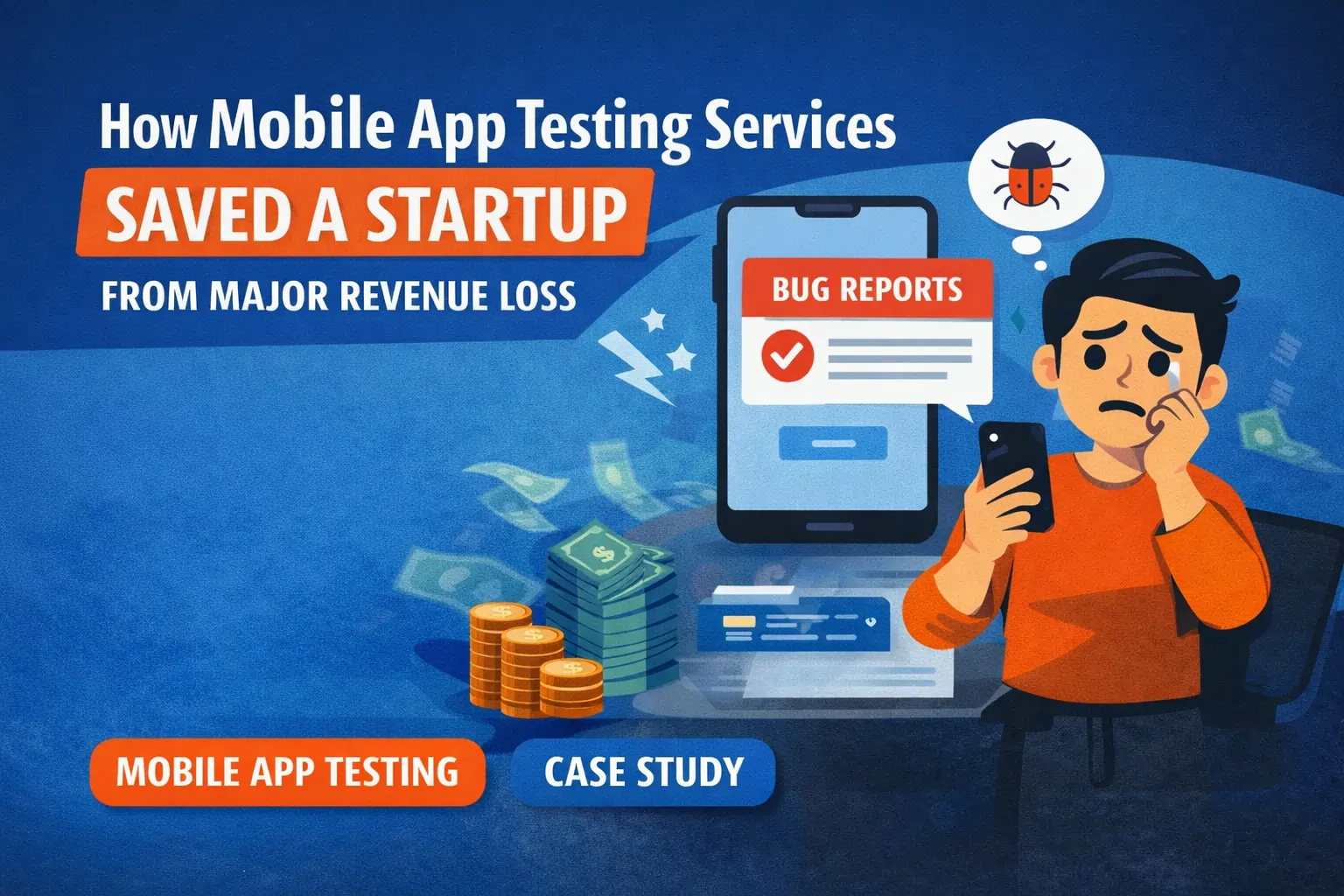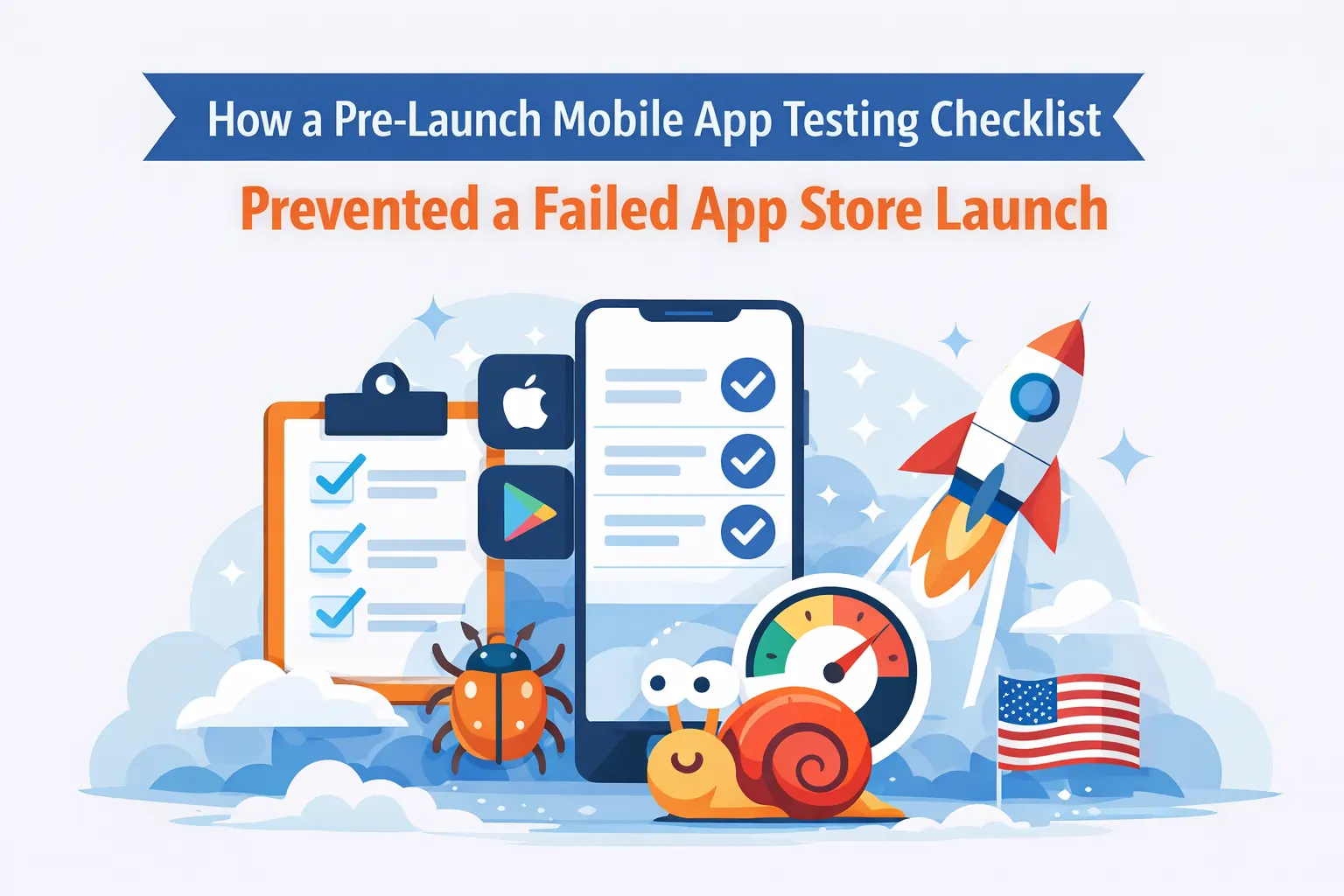How to Perform Regression Testing in Android Application Testing
Android application testing services are essential for ensuring Android apps function properly and meet quality standards. By utilizing Android application testing services, developers can identify bugs, improve performance, and ensure features work after updates. These services are key to detecting potential issues before reaching users. Whether it’s a minor tweak or a major update, Android application testing services help prevent new problems from arising. With both automated and manual testing methods, Android application testing services ensure smooth performance across various devices. In today’s fast-paced development world, relying on Android application testing services is crucial for uncovering hidden bugs early. Consistent use of Android application testing services helps businesses save time, reduce costs, and improve user satisfaction by delivering a high-quality, bug-free app.
Why Is Regression Testing Important for Android Application Testing?
With Android apps constantly evolving—whether through bug fixes, feature additions, or Android OS updates—regression testing becomes essential. Android app testing services are often used to ensure no new bugs are introduced when new code is added. It’s especially important when testing on real devices because issues may not always manifest on emulators. Android mobile app testing guarantees that every aspect of the app works across a range of Android versions and devices, helping you deliver the best user experience.
Common Scenarios for Regression Testing in Android Mobile Testing
Regression testing is especially necessary after any change in the app. Whether it’s Android app beta testing, android mobile app testing, or updates made to the Google Play Store version, regression testing ensures you don’t overlook any issues. Manual Android app testing and automation play critical roles in catching regressions across all aspects of the application, from performance to UI functionality
Benefits of Regression Testing in Android Application Testing
Ensures Stability Across App Updates
By regularly performing regression testing on Android apps, you can ensure that previous versions of the app remain stable after updates. This is especially important when conducting Android testing across real devices, where device-specific issues may arise. The combination of Android mobile testing services and Android application testing best practices helps ensure that each update doesn’t negatively impact the app’s core features.
Improves User Experience Through Android App Testing Services
Android mobile app testing through automation or manual efforts directly impacts user experience. Through comprehensive regression testing, developers can find and fix issues early, ensuring that Android apps continue to provide a smooth and responsive experience. Using Android app testing services, developers can ensure that updates deliver value to users without compromising app functionality.
Minimizes Risk of Reintroducing Bugs in Android Mobile App Testing
When using android app manual testing methods in conjunction with automated regression tests, developers can ensure that new changes don’t reintroduce bugs that were previously fixed. In real device testing, especially for Android apps released on Google Play, regression tests help avoid issues that might only appear on certain devices or operating systems.
Types of Regression Testing for Android Applications
Unit Regression Testing in Android Mobile App Testing
Unit regression testing focuses on testing small individual components of the app after code changes. Automated tools like android testing automation frameworks can speed up the process. For example, android app testing services can help test specific units of the app to confirm that bug fixes do not break any part of the app’s core functionality.
Partial Regression Testing for Android Apps
Partial regression testing is done when only certain parts of an app are changed. It’s a vital strategy for teams offering android testing services to focus on areas impacted by new features, ensuring that critical paths remain functional. This is where manual Android app testing can be useful to test smaller sections in isolation.
Complete Regression Testing in Android Application Testing
Complete regression testing involves testing the entire app after a significant update or modification. This type of testing is particularly crucial for ensuring that Android mobile testing efforts across various devices, OS versions, and configurations are consistent and stable. It guarantees that no part of the app is left unchecked.
Setting Up a Regression Testing Environment for Android Applications
Preparing the Android Mobile App Testing Environment
Setting up the proper environment for Android app testing involves having the right tools and configurations in place. This might include setting up Android Studio for Android app manual testing, as well as preparing testing frameworks for Android testing automation. Real device testing should also be a part of the process, ensuring that your regression tests align with a wide range of devices.
Configuring Android Testing Tools for Effective Regression Testing
When using Android app testing services or building your own testing environment, tools like Espresso, Appium, and Robotium are great for automating regression tests. These tools allow you to test Android applications on both real devices and emulators, ensuring comprehensive Android mobile testing coverage across multiple platforms.
Testing on Real Devices for Android App Testing
Testing Android apps on real devices is crucial, as it helps detect issues that may not appear on emulators. Regression tests should be carried out on various devices to ensure consistency in performance and compatibility. Android app testing services typically offer access to a broad range of real devices for this purpose.
Best Practices for Regression Testing in Android Application Testing
Prioritize Critical Features for Android App Testing
When performing regression testing for Android apps, it’s important to prioritize test cases based on the app’s core functionalities. By focusing on high-priority features, such as payment processes, user authentication, and data storage, you can minimize the risk of breaking key aspects of the app. Using Android app testing services can help ensure that these critical features are thoroughly tested.
Automate Android App Testing for Efficiency
Automating regression testing can drastically improve testing efficiency. Android testing automation ensures that your regression tests are run every time there’s a new update. This is especially useful when Android mobile testing on multiple devices is required. Automation tools can catch regressions faster and more accurately than manual testing.
Regularly Update the Test Suite for Android Application Testing
As new features and bug fixes are added to the app, the regression test suite should be updated accordingly. This ensures that the test cases reflect the latest functionality in the Android app. Maintaining an up-to-date suite, especially for Android testing service providers, is essential to ensure comprehensive coverage during every update.
Tools and Frameworks for Regression Testing in Android
Automated Testing Tools for Android Mobile App Testing
Tools like Appium and Espresso are essential for automating Android app testing automation and regression testing. These frameworks allow developers to perform both UI and functional testing, ensuring the stability of the app after updates. Using these tools in Android mobile testing enables faster, repeatable tests across a variety of devices.
Choosing Between Open-Source and Paid Android Testing Tools
When considering Android testing service providers, it’s important to choose the right tools. Open-source tools like Espresso are free but require manual setup, while paid tools often come with customer support and additional features like cloud-based testing. Developers should weigh the benefits based on the scale of their android application testing needs.
Integrating Android Testing Automation with Continuous Integration
By including these tests in a Continuous Integration (CI) pipeline, teams utilizing Android testing automation tools may make sure that tests are executed automatically whenever code changes. By enabling developers to identify problems early and guarantee the reliability of Android apps prior to release, this integration is essential for regression testing.
How to Create Effective Regression Test Cases for Android Apps
Identifying Key Features for Regression Testing in Android Applications
It’s critical to concentrate on features that have the biggest influence on users when developing regression test cases for Android apps. Features like user data management, payment processing, and account login should be given top priority during the testing of Android mobile apps. You can save time and concentrate on what really matters by giving priority to the features that are used the most.
Documenting Expected Results for Android App Testing
Clear documentation of expected results is essential when performing Android app manual testing. It helps ensure consistency in test execution and makes it easier to identify discrepancies between expected and actual behavior. Android app testing services often follow standardized procedures for documenting expected outcomes.
Prioritizing Test Cases Based on User Behavior
Use analytics to understand which features of your Android app are most used. By focusing on these areas for regression testing, you ensure that the app continues to provide a great experience for the majority of users. This approach helps optimize your Android application testing efforts and resources.
Executing Regression Testing for Android Applications
Manual Regression Testing for Android Apps
Manual testing is critical for catching subtle issues that automated tests might miss. For example, when conducting Android mobile app testing, testers can simulate real user interactions to uncover issues related to UI responsiveness or device compatibility. Regular Android app manual testing is necessary to confirm that no regressions have been introduced.
Automated Regression Testing with Android Testing Frameworks
Automating regression tests with frameworks like Espresso and Appium helps speed up the process and improves test coverage. Automation is key when performing Android testing automation on large-scale applications or when testing multiple device configurations.
Testing Android Apps on Real Devices
Since some defects might not be noticeable on emulators, real device testing is an essential component of regression testing. Developers can identify problems pertaining to certain device configurations, operating systems, and user environments by conducting Android app testing and Google Play tests on real devices.
Common Challenges in Android Application Regression Testing
Handling Fragmentation in Android Mobile Testing
Android’s fragmentation, with numerous OS versions and devices, poses a challenge for regression testing. Using Android testing services that specialize in testing across multiple devices and OS versions can help developers address this issue and ensure consistent performance for users across the Android ecosystem.
Managing Frequent Updates in Android App Testing
With regular updates and feature additions, it’s vital to keep regression tests up-to-date. As new Android features and OS versions are released, android mobile testing becomes even more important to ensure compatibility and prevent breaking changes. Automating tests makes this process more manageable.
Maintaining a Stable Test Environment for Android Testing
For effective Android app testing automation and real device testing, it’s crucial to maintain a stable testing environment. This includes having consistent access to updated devices and versions to avoid discrepancies during testing.
Conclusion
Regression testing is a crucial practice for maintaining the stability of Android applications. Whether using Android app manual testing, automated Android testing automation, or a combination of both, it ensures that new changes don’t break existing functionality. Regular testing using Android mobile testing services and the right tools can help you deliver a seamless app experience. To keep your Android app free of bugs, integrating Android testing service providers and ensuring thorough Android mobile app testing with automated tools can save time and resources. Regular regression testing will guarantee that your Android application stays up-to-date, stable, and











